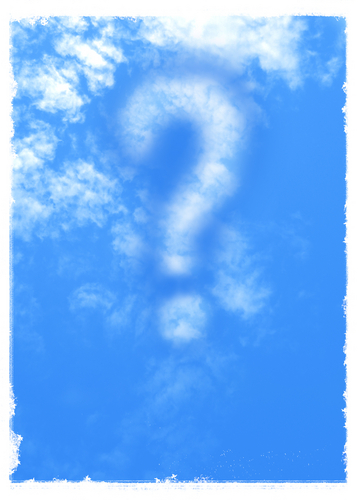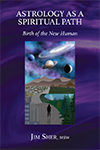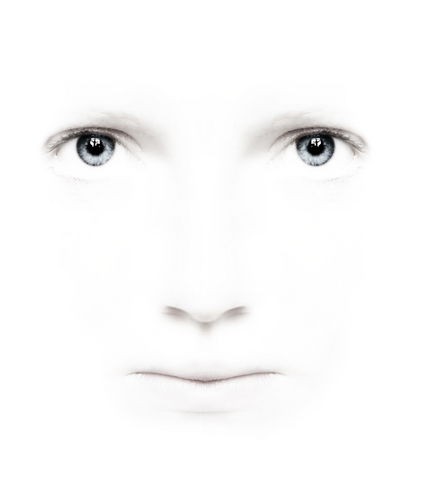In Part II, I have discussed the nature of the split between the “normal”, secular world and the spiritual path, the limited nature of intelligence as it is commonly conceived, and the need to create a bridge to a new way of regarding intelligence. I have suggested the term Wisdom-Intelligence-Love as a way of referring to this expanded form of intelligence. While we must redefine the term itself, we must do more than that. We must question how we will have to approach this very process.
The Value of Examining our Definitions and Assumptions
In many discussions with psychologists, philosophers, linguists, and teachers as well as many students with whom I have worked, I’ve noticed that the word ‘intelligence’ is one of the most emotionally evocative, troubling, and divisive words I’ve encountered. While we often assume that everyone knows what it means, in actuality nothing could be further from the truth. What we are dealing with here is a word that means many different things, so much so that perhaps it is so overused and under-defined, that it doesn’t have any meaning at all. This is a helpful thing to know for this discovery shows us where we must begin. The effort to create a bridge must begin with an inquiry into the fact that we have many beliefs and assumptions about this word, since the examination of this may become the very doorway we need to discover the nature of Intelligence.
The Beginning of Inquiry
 What approach must we take to explore our beliefs and assumptions? We may not know how to do this or even what we are up against. We may not know exactly what our preconceptions really are. But if we see the need to discover more about these things for ourselves, we can recognize something important about the general nature of assumptions themselves. When we look in this way, we can come upon the uncomfortable fact that our assumptions are based on what we’ve been told by others. Maybe these were formed when we were very young, and may even be pre-verbal. The more we look at our assumptions about intelligence, the further this extends. When we look at our very thoughts, we see that we have been conditioned by parents, teachers, religious authorities, media, and by our very culture. This realization can lead us to ask if there is anything we actually know about this that comes from ourselves alone. I once read that in certain ancient Wisdom schools, a task sometimes given to a student was to ask the question – “What do I know and what do I do not know?” This was to be contemplated upon until the student gained the very understanding I am describing here. Imagine you are contemplating this in great detail and with a strong intention. Is all that you know actually coming from others? How conditioned are you? Exactly what can you identify as what you know from within yourself? And finally, is this way of knowing sufficient for us as we engage in this important question?
What approach must we take to explore our beliefs and assumptions? We may not know how to do this or even what we are up against. We may not know exactly what our preconceptions really are. But if we see the need to discover more about these things for ourselves, we can recognize something important about the general nature of assumptions themselves. When we look in this way, we can come upon the uncomfortable fact that our assumptions are based on what we’ve been told by others. Maybe these were formed when we were very young, and may even be pre-verbal. The more we look at our assumptions about intelligence, the further this extends. When we look at our very thoughts, we see that we have been conditioned by parents, teachers, religious authorities, media, and by our very culture. This realization can lead us to ask if there is anything we actually know about this that comes from ourselves alone. I once read that in certain ancient Wisdom schools, a task sometimes given to a student was to ask the question – “What do I know and what do I do not know?” This was to be contemplated upon until the student gained the very understanding I am describing here. Imagine you are contemplating this in great detail and with a strong intention. Is all that you know actually coming from others? How conditioned are you? Exactly what can you identify as what you know from within yourself? And finally, is this way of knowing sufficient for us as we engage in this important question?
To know for ourselves is going to be challenging, even daunting. The reason is that the moment we see that all of what we have called knowing is mere assumption or belief, we come upon the realization that we will have to discard all of it and start fresh. The wonderful philosopher and teacher Jiddu Krishnamurti addressed this specifically when he said, “One has to discard all the premises, all the experiences from others, all the mystical assertions. One has to start as if one knows absolutely nothing.”
Seeing the Nature of the Difficulty
 The effect of this realization can be astonishing, for by recognizing that we are limited by our conditioning, we may have taken our first step towards the experience of Intelligence. Of course, it is only a beginning because this very discovery can also be disturbing. We have built up strong concrete-like structures to support our belief systems. We have lived our lives with them and are invested in them. They are keeping us psychologically comfortable and secure. We’ve relied on authorities to tell us what is true and right and now we’re supposed to rely on nothing outside ourselves? That can be terrifying. We feel vulnerable and can even sense an urgency that was not there before. This is a necessary stage for us. We might now be able to embrace this sense of urgency and its accompanying feelings of fear and insecurity. The truth is there can be no sense of urgency as long as we believe somebody out there will solve the problem for us and give an answer. The recognition that “I” must do something is an essential quality to this process. It is the necessary attitude to have in order to being to contemplate our preconceptions, the hundreds of beliefs (conscious and unconscious) we’ve inherited from others throughout our life, and to then be motivated to inquire into the depths of this question. To see we know little or nothing, to really see it, is the beginning of intelligence and is what enables us to become open to something truly new.
The effect of this realization can be astonishing, for by recognizing that we are limited by our conditioning, we may have taken our first step towards the experience of Intelligence. Of course, it is only a beginning because this very discovery can also be disturbing. We have built up strong concrete-like structures to support our belief systems. We have lived our lives with them and are invested in them. They are keeping us psychologically comfortable and secure. We’ve relied on authorities to tell us what is true and right and now we’re supposed to rely on nothing outside ourselves? That can be terrifying. We feel vulnerable and can even sense an urgency that was not there before. This is a necessary stage for us. We might now be able to embrace this sense of urgency and its accompanying feelings of fear and insecurity. The truth is there can be no sense of urgency as long as we believe somebody out there will solve the problem for us and give an answer. The recognition that “I” must do something is an essential quality to this process. It is the necessary attitude to have in order to being to contemplate our preconceptions, the hundreds of beliefs (conscious and unconscious) we’ve inherited from others throughout our life, and to then be motivated to inquire into the depths of this question. To see we know little or nothing, to really see it, is the beginning of intelligence and is what enables us to become open to something truly new.
Long ago I read that humans use only a small portion of our brain. This is certainly an interesting fact. The brain is an incredible storehouse of memories and adaptations. It responds (reacts) instantly to every situation whether it be challenging, terrifying, or pleasurable. However, these are not only from our own life. This storehouse goes far beyond personal experience to include centuries upon centuries of conditioning. What is important to understand is that all this is conditioning, is quite limited, and operates automatically. It seems that the small part of the brain that we use is the past. So, is there are a part which has not functioned at all, a part that is open, empty, and new? Let us ask what would it take for us to begin to activate more of it? It seems self-evident that as long as we operate safely and comfortably within the realm of the known, that we will never be able to broaden the unused portions of our brain where all of our potentialities must reside.
The Quiet Mind
Jiddu Krishnamurti offered the idea that “when the old part of the brain is in operation, that it can’t discover anything new.” We can infer from this that since the contents of our mind are completely composed of conditioning from our past that “it is only when the old brain is quiet that something new can be seen or discovered. Nothing new can ever emerge in us until that very mind is still, quiet, and open. This is why Krishnamurti wrote that “Intelligence comes into being when the brain discovers its fallibility, when it discovers what it is capable of and what it is not.” The development of this is a process. It is rare for this to occur suddenly or spontaneously, which is why K. also mentioned that ‘for this to happen, one must be serious”. One must devotedly regard this task as being “something I am going to pursue to the end.”
In Part 4, we will examine the tools we will need to actually begin to inquire as well as look at any assumptions that could block us from being able to even start.





Social Links